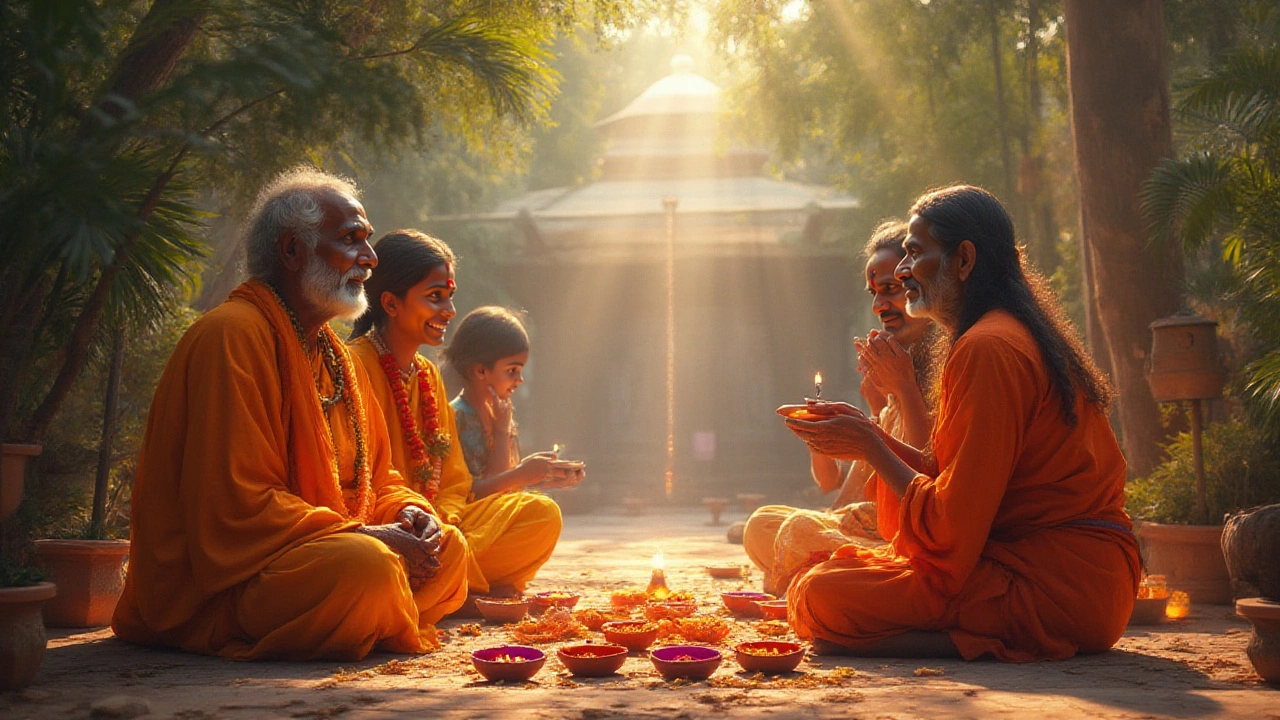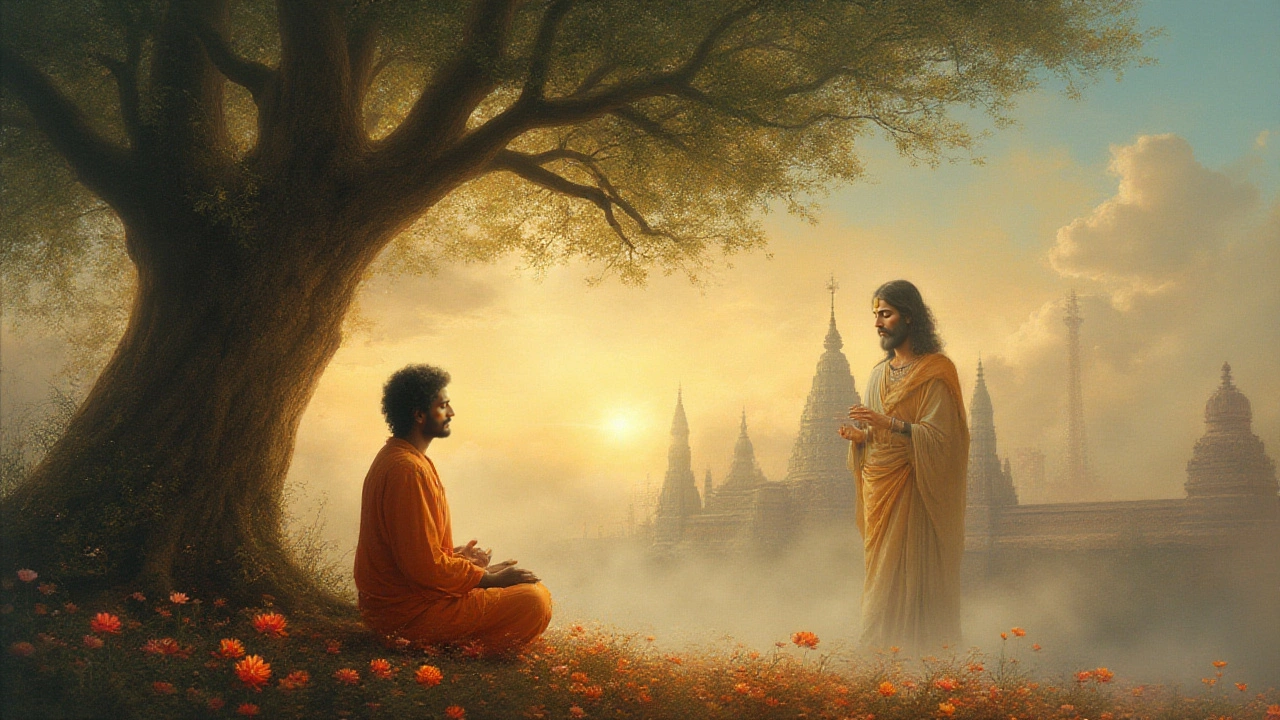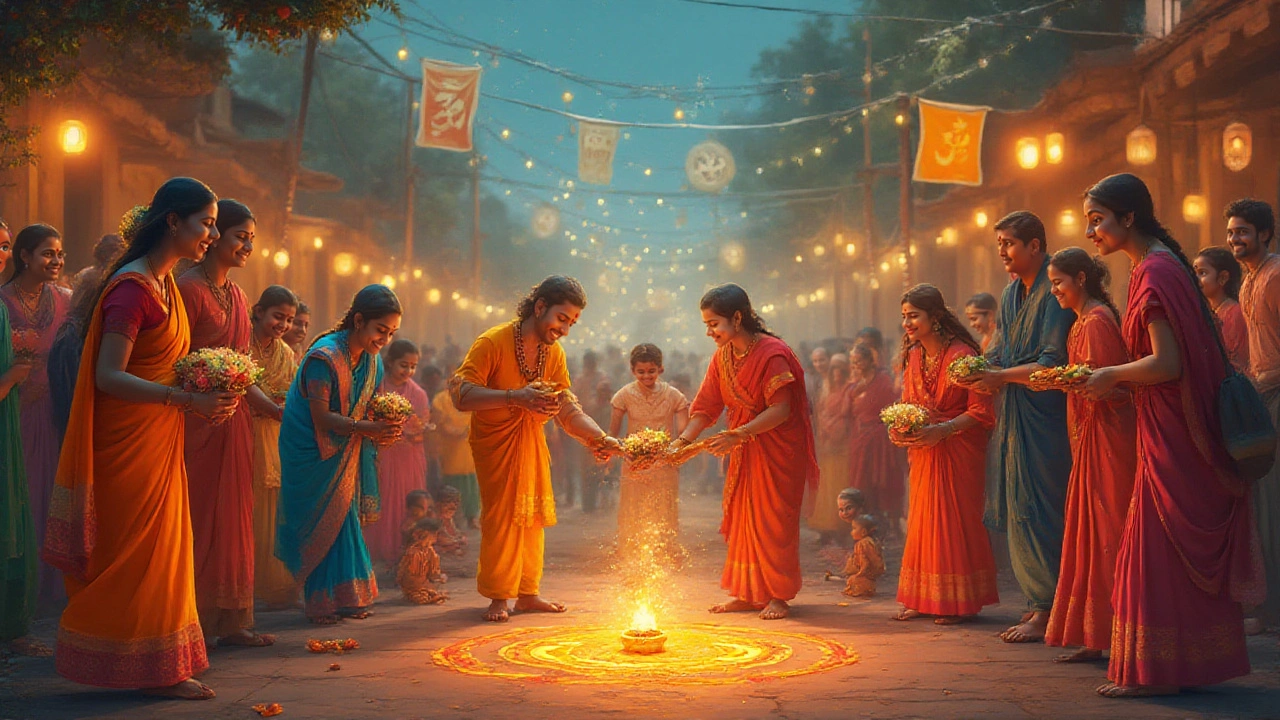What Do Hindus Think of Jesus? Insights Into Hindu Perspectives and Beliefs
 Aug, 2 2025
Aug, 2 2025
Ask someone in Delhi who Jesus was, and you might get answers as varied as a street food menu. Some would call him an avatar, some a wise teacher, and for a few, he’s just a foreign god. The curiosity isn’t just among the young or the deeply religious. Even my uncle, who starts his mornings with a yoga routine and ends them with a whisky, has strong opinions about Jesus—mostly shaped by Bollywood films, Christmas cakes, and his Christian friends from college. So, what’s behind this unique Indian take on Jesus Christ?
Historic Encounters: How India First Met Jesus
Way before British missionaries arrived, stories about Jesus had already seeped into the subcontinent. One of the oldest Christian communities, the Saint Thomas Christians (or Syrian Christians), trace their roots back to St. Thomas the Apostle, who they say landed in Kerala in 52 CE. That’s way before Vasco da Gama docked in Calicut. Over time, Christianity became a living, breathing part of India—still a tiny minority (about 2.3% of the population), but with deep roots in the country’s culture and folklore. Some Hindu texts from the colonial period mention Jesus as "Eesa" or as a great yogi. While a lot of this cross-religious chatter was more urban legend than historical fact, it set the stage for centuries of shared stories and respect.
Unlike Europe, India didn’t see Christianity as a threat for most of its history. Instead, it was just another thread in its sprawling, often confusing religious tapestry. Even today, Christians join Hindu weddings, and Hindus happily enjoy Christmas fruitcake. The word "Yeshu" feels as at home in Delhi as it does in Dublin. It’s this long legacy of mingling that leaves many Hindus so comfortable contemplating Jesus as part teacher, part divine being, and part old friend from across the border.
Seeing Jesus Through the Hindu Lens
Here’s where it gets interesting. In Hinduism, there’s no one dogma you have to toe. Every family, every region, sometimes every individual has their own blend of beliefs. So, when Hindus think of Jesus, the answers are often personal and elastic. Many see him as a holy teacher or sadhu, with a life story full of sacrifice and compassion—values that line up neatly with figures like Krishna or Rama.
The idea of avatars is central to Hinduism. Divine light taking human form is a concept that makes it easy for Hindus to see Jesus as a kind of avatar, even if not theirs. Famous spiritual teachers like Swami Vivekananda and Paramhansa Yogananda spoke of Jesus as a great yogi—someone who had transcended human limitations through deep meditation and divine love. Yogananda’s book, "The Second Coming of Christ," is a classic read for anyone interested in these crossovers. To a lot of Hindus, the specifics of birth or dogma don’t matter. What’s important is the message. Compassion, selfless service, love for all—these are ideals shared across the Hindu spectrum. I’ve seen multiple Hindu families in Delhi set up a photo of Jesus alongside Lakshmi or Ganesha, especially around Christmas. There’s also a running joke in some circles that Jesus studied yoga in the Himalayas during those “missing years”—a legend that refuses to die.

Jesus in Hindu Homes: Rituals, Temples, and Modern Blends
Think it’s odd for a Hindu to pray to Jesus? Not in India. In cities like Mumbai and Bangalore, you’ll find roadside shrines with flowers before Jesus’ statue, right next to pictures of Sai Baba and local deities. Some Hindus attend Christmas midnight mass just for the spiritual feels or the dazzling decorations. A neighbor in my lane, an elderly aunty who keeps full “vrat” on Mondays, has a rosary draped around her bedside photo of the Sacred Heart. For her, Jesus is a "saintly man whose blessings work wonders."
Here’s a quirky fact: in some parts of South India, local folk traditions have literally adopted Jesus. The famous "Yeshu Bhakti" movement celebrates Christmas with bhajans, and some Hindu temples incorporate references to Jesus in local festivities. Even in regular homes, nativity scenes and Christmas trees sit right next to diyas and idols during December. The lines blur—the only rule seems to be: the more, the merrier.
One thing that stands out is the lack of exclusivity. For most Hindus, respecting another faith doesn’t require abandoning your own. People don’t mind mixing and matching spiritual inspiration, as long as it brings peace or luck. My own grandmother lights a candle at the local church every time someone in our family falls sick, right after her regular puja. It’s practical, pragmatic, and deeply Indian.
Controversies and Differences: Where Views Clash or Merge
Of course, it’s not all harmony and shared sweets. Indian society has seen its share of tension between faiths, especially over conversion efforts and missionary work—particularly in rural areas. Some Hindu groups feel uneasy about aggressive evangelism, seeing it as a threat to traditional ways. At the same time, there’s pushback from those who believe that real interfaith respect means not just tolerating but also understanding and learning from each other.
But even during heated debates, Jesus himself is rarely the focus of criticism. Instead, the debate is usually about institutional practices. When asked about Jesus, most Hindus still respond with admiration, citing his sacrifice and teachings. A 2023 Pew survey on Indian religious attitudes found that 81% of Hindus said they had a favorable view of Jesus, and over 60% had attended a Christmas-related function at least once. There’s a genuine curiosity among younger generations, too—many urban teens have read up on Jesus as part of yoga’s global spread, or through pop culture. This younger crowd sees Jesus’ ideas as universal, transcending any particular dogma.
A big talking point lately is how Indian pop spirituality makes room for almost everyone. Yoga studios use Jesus’ sayings for motivation, daily meditation apps quote from the Sermon on the Mount, and influencers share stories connecting Jesus with ancient Indian sages. It’s sometimes controversial, sometimes inspiring, always a lively discussion. Ask three people in a Delhi cafe what they think of Jesus, and you’ll get three fascinating replies.

Embracing Diversity: The Modern Hindu Attitude
Step into a modern Indian classroom, and you’ll see drawings of Gandhi, Mother Teresa, and Jesus on the wall along with Ram and Krishna. The point is, learning about heroes of all faiths is encouraged, if not expected. Interfaith marriages are on the rise, with Hindu-Christian couples navigating their traditions with creativity and ease. Christmas and Diwali are both reasons for office celebrations, and it’s common to see the same people send “Merry Christmas” and “Jai Shri Ram” WhatsApp forwards to different groups in December.
Even Bollywood, which shapes so much of how Indians see the world, portrays Jesus with warmth. Scenes in films like "Amar Akbar Anthony" and "My Name is Khan" show Hindus, Muslims, and Christians praying together. It’s no exaggeration to say that, for many Hindus, Jesus is less a distant figure and more a respected universal teacher—a blend of friend, guide, and classic symbol of sacrifice.
So what’s the practical takeaway for anyone curious about how Hindus view Jesus? Flexibility, openness, and a surprising amount of personal connection. There’s no single right answer—just a tapestry of beliefs, rituals, and warm respect that reflects the mad, beautiful diversity of India itself.
| Religious Group | Percentage of India's Population | View on Jesus* |
|---|---|---|
| Hindus | 79.8% | Holy man, avatar, or teacher; generally positive |
| Christians | 2.3% | Son of God, savior in traditional sense |
| Muslims | 14.2% | Prophet, but not divine |
*Based on 2023 Pew Religious Attitudes Survey
If you’re curious, ask a few Hindu friends how their families see Jesus. You’ll probably hear stories about mixing customs, going to Mass on Christmas, or what their favorite moral from the New Testament is. There's no single, boxed-up answer—just a lot of warmth and an open mind.